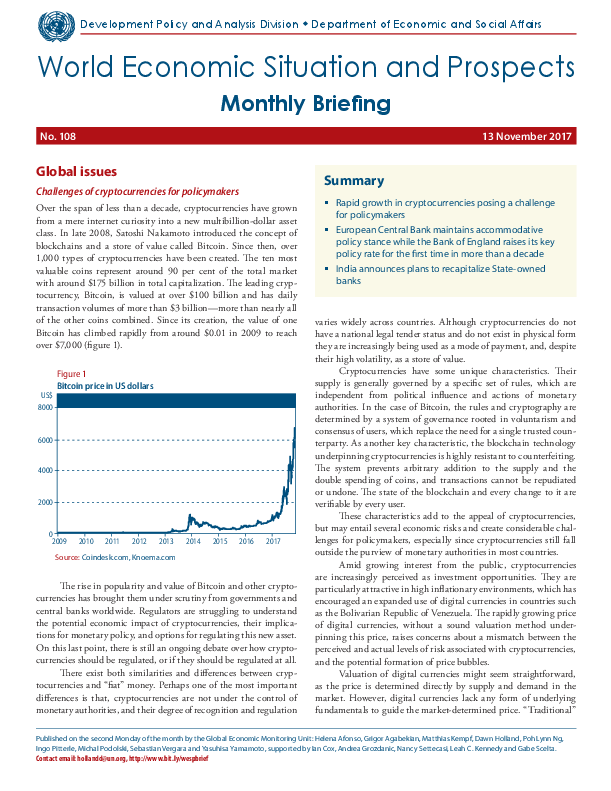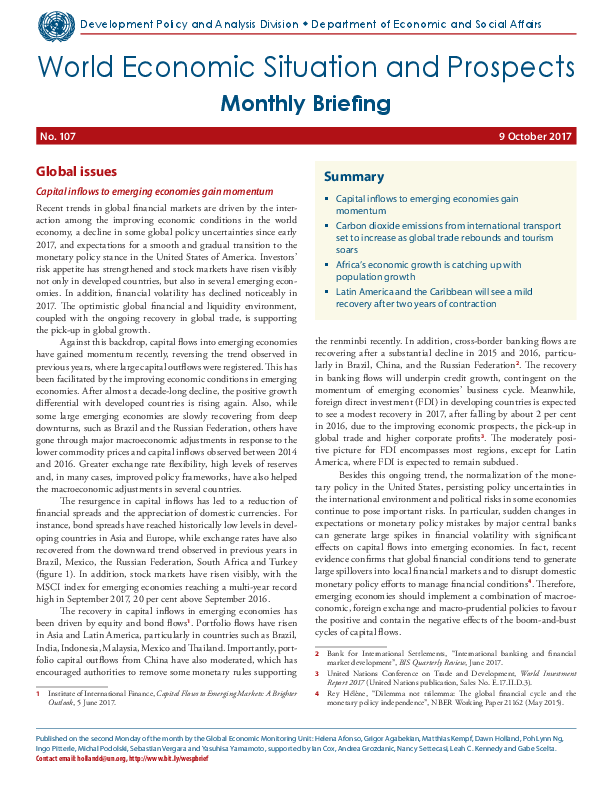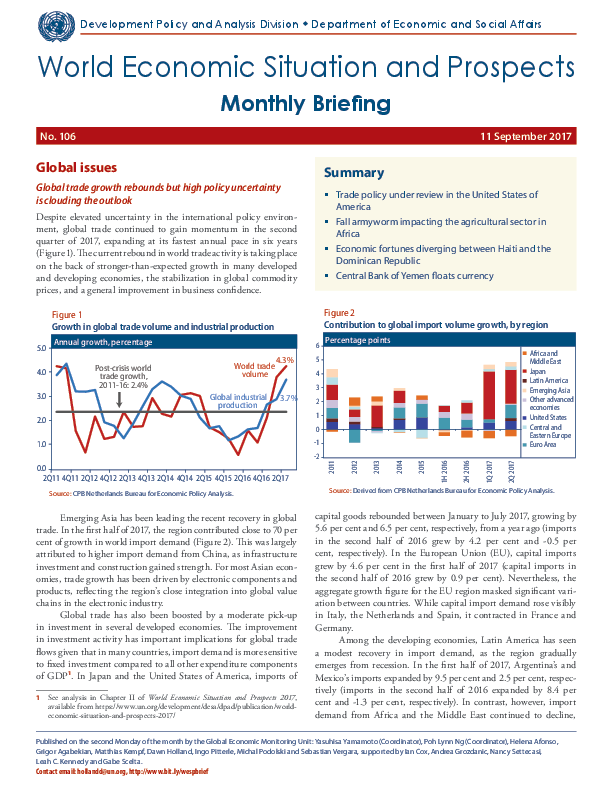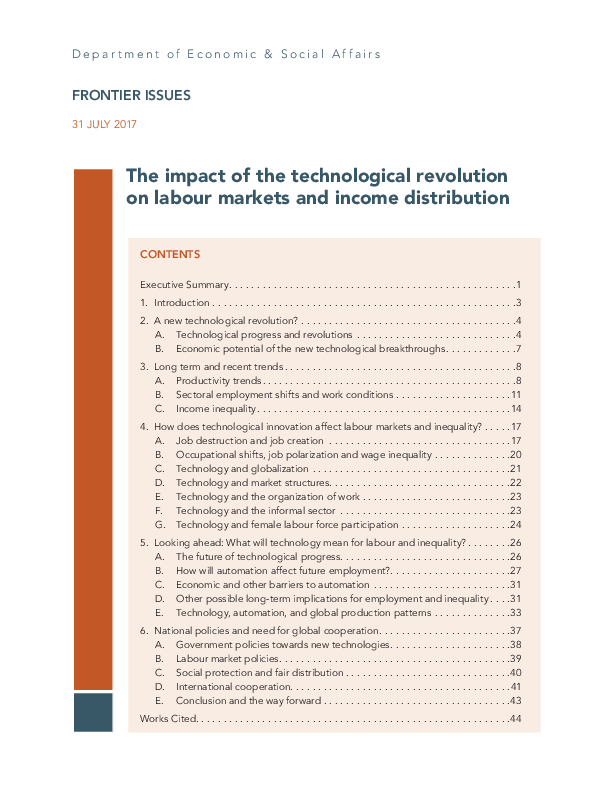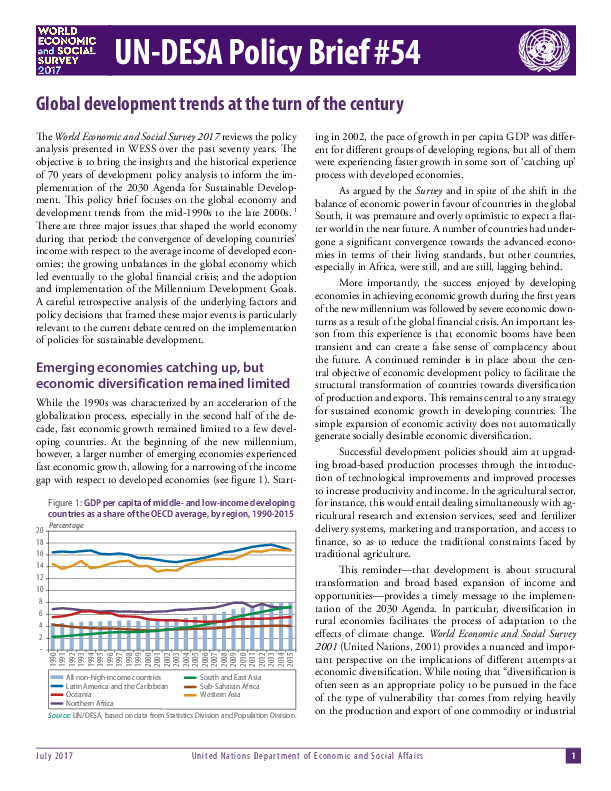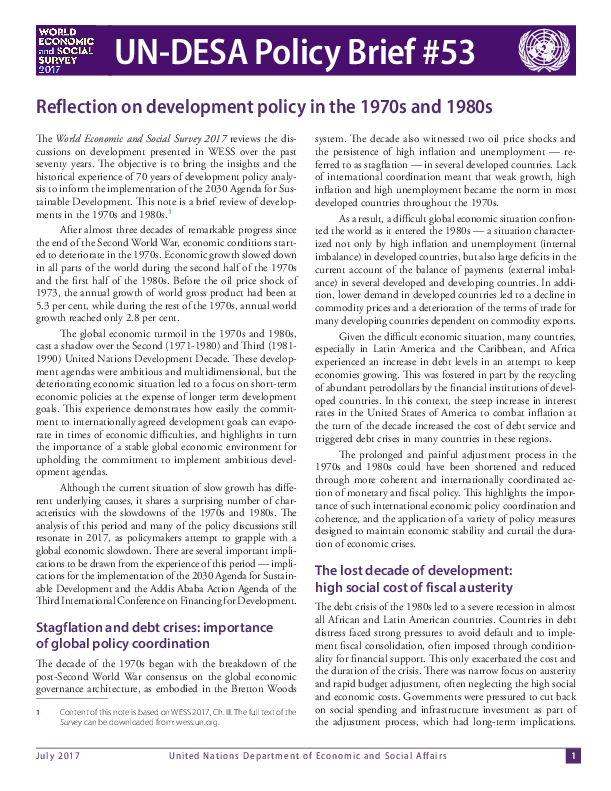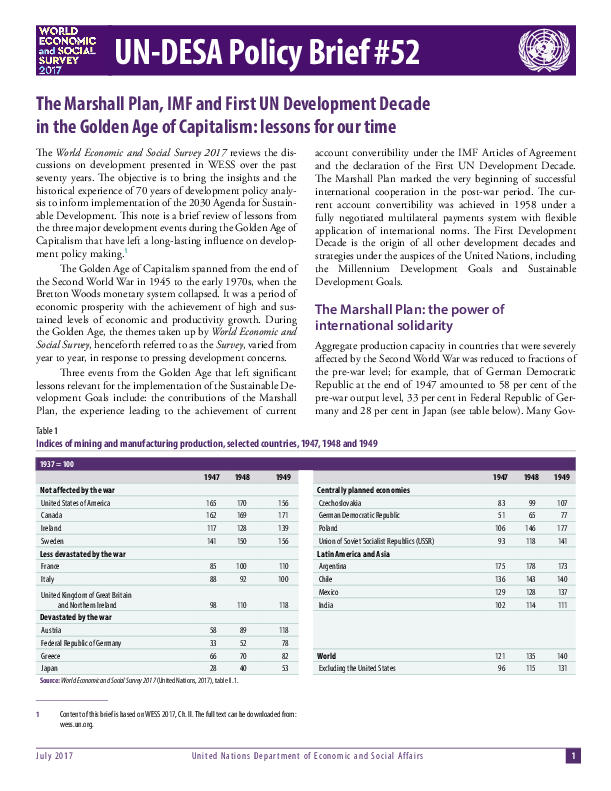Publications
Displaying 401 - 410 of 1084
Carbon dioxide emissions from international transport set to increase as global trade rebounds and tourism soars
Africa?s economic growth is catching up with population growth
Latin America and the Caribbean will see a mild recovery after two years of contraction
???? ,?
Fall armyworm impacting the agricultural sector in Africa
Economic fortunes diverging between Haiti and the Dominican Republic
Central Bank of Yemen floats currency
 Welcome to the United Nations
Welcome to the United Nations

